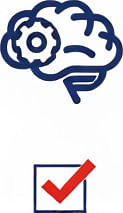Learning from Failures in ADHD Productivity
 by Lilian Nienow
by Lilian Nienow
Discover how turning everyday failures into valuable learnings can boost productivity for those with ADHD. This article offers practical strategies and encouragement to help adults build resilience and achieve goals.

Many people with ADHD encounter setbacks in their daily routines, and these moments can feel discouraging. But failures offer a chance for growth. For instance, ADHD often leads to forgotten tasks, which might seem like a simple mistake. By examining these patterns, individuals can identify triggers and adjust their approaches.
One key area is task management. People with ADHD may struggle with starting projects, leading to incomplete work. Instead of viewing this as defeat, consider it a signal to try new methods. For example, breaking tasks into smaller steps can make them more approachable. This way, what once felt overwhelming becomes manageable.
Reflecting on past errors builds awareness. Say you planned a day full of activities but ended up distracted; this could highlight the need for focused techniques. Tools like timers help maintain attention without pressure. Over time, these adjustments turn slip-ups into lessons that strengthen habits.
Building routines is another vital step. For adults dealing with failures, consistency matters. Start with simple daily goals, such as setting aside time for reflection each evening. This practice encourages positive changes and reduces frustration. Lists can organize thoughts, turning chaos into clarity.
Strategies to Try
When facing challenges, experiment with different approaches. For example, pairing tasks with enjoyable activities makes them less tedious. If a work session fails, note what worked and what didn't, then adapt for next time. This method fosters resilience and empowers progress.
Collaboration also plays a role. Sharing experiences with others who have similar challenges provides support and new ideas. Through open discussions, you might learn that many find success by prioritizing rest, which aids focus.
Remember, progress isn't always linear. Each learning from a setback contributes to better productivity. For young adults juggling school and life, this means celebrating small wins, like completing a single task without distraction. Over time, these victories build confidence.
In practice, apply these insights gradually. If distractions arise during study sessions, identify the cause and test solutions like a quieter environment. This targeted approach turns potential failures into opportunities for improvement.
Ultimately, embracing these experiences leads to lasting change. By focusing on personal growth, individuals with ADHD can create effective systems that fit their needs, leading to a more fulfilling routine.
